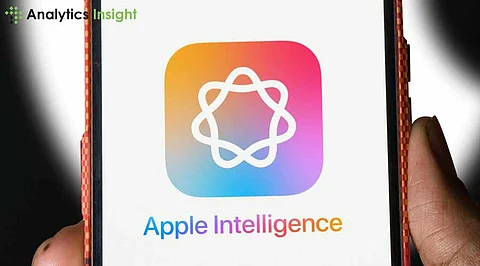

Apple’s proprietary AI, Apple Intelligence was unveiled at WWDC 2024. The long-awaited AI product is poised to offer a unique, privacy-focused approach to generative AI.
Despite the hype, Apple Intelligence remains in development, with delays attributed to both internal and external factors. So, what exactly is holding Apple back?
One of the core elements behind Apple’s measured approach to Apple Intelligence is its commitment to privacy.
In an interview with The Wall Street Journal, Apple’s head of software, Craig Federighi, explained that Apple Intelligence is not just another AI chatbot. The goal is to create a deeply personal, integrated system that aligns with Apple’s long-standing privacy principles.
Unlike many AI models from competitors that process user data via cloud servers, Apple aims to prioritise on-device AI processing.
Federighi revealed that most AI models send every user prompt to cloud servers, which can compromise privacy.
Apple, however, is committed to keeping as much of the processing on the device itself.
"When you ask to summarise a long email, it’s encrypted to a trusted device in the cloud that performs AI processing and returns the result. The important part is that Apple has no access to that email, and it’s gone once the process is complete,” Federighi said.
This method ensures that sensitive user data isn’t stored or accessible by Apple. This privacy-first approach is a major reason for the delays, as Apple wants to ensure that the technology is both powerful and secure.
While companies like Google, Microsoft, and Meta have been rapidly rolling out AI solutions, Apple has chosen to move forward at a slower, more calculated pace.
Federighi emphasised that AI is a long-term technology, with developments unfolding over many years, or even decades. "This is a many-year, honestly even decades-long arc of this technology playing out, and we’re going to do it responsibly," Federighi stated.
The idea is not to rush into the market with half-made solutions but to deliver polished features when they are fully ready.
The customers of Apple have been eagerly awaiting more sophisticated AI functionalities in Siri, Apple's voice assistant.
Siri has been around for over 13 years, but its abilities have often lagged behind its competitors.
According to Federighi, Apple Intelligence will significantly enhance Siri's capabilities.
“The great news is that Siri is useful today and has been for many people for years, but it’s getting more and more useful. This power of Apple Intelligence and large language models means that Siri can understand you better than ever before,” Federighi said.
However, this doesn’t mean users should expect a revolutionary shift overnight.
Siri’s transformation will occur like the rest of Apple Intelligence, will happen in stages. “Is there going to be one moment where we say Siri is now my sentient pal? No. It’s going to continue to get better and better,” Federighi added.
Another contributing factor to the delayed rollout of Apple Intelligence is regulatory scrutiny, particularly in the European Union (EU).
Apple has faced increasing pressure to comply with stringent data privacy regulations. These regulations have made it more difficult for companies to deploy AI solutions that involve processing personal data, even when anonymised or encrypted.
Apple’s decision to prioritise privacy and align with these regulations has naturally slowed the pace of AI development.
When Apple Intelligence does arrive, it won’t be available to all Apple users immediately. The initial rollout is set for October 2024 with the release of iOS 18.1 and will be limited to iPhone 15 Pro models and all iPhone 16 models.
It will eventually expand to other devices like Macs and iPads, but this staggered release may leave some users waiting longer than expected.
This phased approach is in line with Apple’s cautious strategy, as the company wants to ensure the new features work seamlessly on its higher-end devices before making them available across the entire product ecosystem.
Federighi mentioned, “You could put something out there and have it be sort of a mess… But Apple’s point of view is more like, let’s try to get each piece right and release it when it’s ready.”
Despite the delays, Apple Intelligence is set to bring several exciting features to iOS, improving the user experience across writing, photo editing, and notifications.
One of the standout features is the AI-powered writing assistant. This will help users proofread text, rewrite content for clarity, and even adjust the tone of their writing.
It offers options like Friendly, Professional, and Concise.
Apple is also introducing enhancements to its Photos app, allowing users to create personalised Memory Movies by simply describing a theme.
Apple Intelligence will then curate relevant photos and music, though users will retain the option to fine-tune the final output through the Memory Mixes feature.
A new ‘Cleanup’ tool, similar to Google’s Magic Eraser, will allow users to edit photos by removing unwanted elements.
It uses AI to blend the image seamlessly without altering the main subject.
Apple Intelligence will also introduce the ‘Priority Notifications’ feature, designed to help users manage their notifications more efficiently.
It will sort and summarise important alerts, working in conjunction with Focus Modes to minimise distractions.
The delays in the rollout of Apple Intelligence stem from a combination of Apple’s emphasis on privacy, its methodical approach to innovation, regulatory challenges, and the desire to ensure a smooth user experience across its product ecosystem.
The phased rollout will begin with iOS 18.1 in October 2024, followed by additional features in iOS 18.2 in December, including integrations with ChatGPT and new creative tools like Genmoji and Image Playground.
By early 2025, the full range of Apple Intelligence capabilities, including enhanced Siri features, should be available with the release of the iPhone SE 4.
